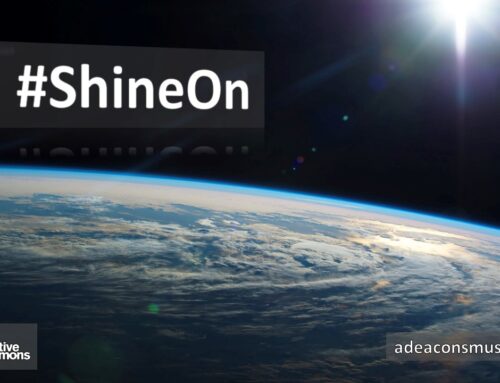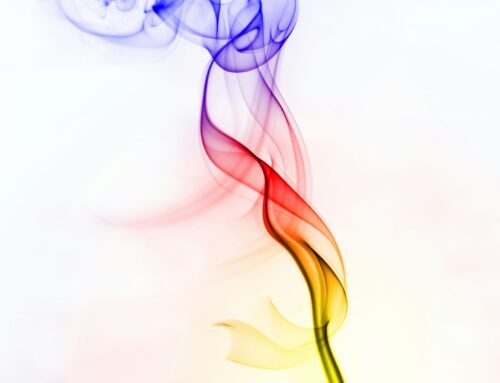It seems that during my Sabbath, following the Holy Season of Christmas, the Canadian Federal Government has added to its bureaucracy: The Office of Religious Freedom. I have been reflecting on how I might best – through A Deacon’s Musing – convey some of my thoughts …
First of all, I guess I need to acknowledge that I believe there are multiple truths that lead to God: whether all are equally helpful or useful to appreciate the Creator, which we know is beyond all our understanding, is more of head-space exercise than one of faith. The truth through which I spy God is Christianity: a ministry exemplified by Jesus and the resurrection that occurred among his Disciples, when giving up could have been very well what they chose after his execution. When in doubt, I default to this mantra: “If what you believe leads you to compassion for all of Creation, grounded in humility, then who am I to challenge.”
Okay back to this new Office …many critiques & challenges have occurred to me. The first hearkens to Orwellian doublethink, especially in relationship to human political structures. In other words, what we say or write does not necessarily mean what they do upon face value. Though no doubt this would be an interesting exploration, another avenue might be a discussion about how political ideological agenda of any given government can usurp, compromise or take over the language of another: in this case faith-based expression through the language of Human Rights. And, as I read over this last paragraph, perhaps these are not mutually exclusive to one another … regardless this is not the route upon which I chosen to tread …
What occurs to me, as a Christian who – like the rest of humanity – is political by nature is the equal recognition that the Christian experience, and in particular that of the Early Church, did not support the dominant political structures called Empire. In today’s parlance of politics we talk about the government, the state, or country. All, I believe, are simply expressions of the same thing: Empire. The very act of the Christian community has been to advocate, through lived experience, a manner of engagement that was political in nature, yet did not support the status quo.
The Early Church, composed of men and women, rejected the dominant structures and chose for themselves what life in community could look like and aspired to an egalitarian life that was both inclusive to all who were seeking and yet endeavoured to remove itself from the coercion of the dominant narrative of Empire. Members of The Way knew that the moment that faith became integrated into the state, it would be compromised and would not bode well for those who choose to continue to adhere to their path.
There were two ways this tension of compromise was confronted as the Christian church developed after the execution of Jesus. The first was immediately following the fall of the Jewish Temple in approximately 70 CE. In essence, as the Christian community moved away from the Synagogue it was seen to be a group that lived in tension with the Roman understanding of the Pax Deorum. What was central to this superficial understanding of multiple religious truths was that all were equal to one another, but only in as much as they reinforced the mechanisms of Empire. If, however, you lived your truth in a way that threatened this hierarchy, then you were deemed to have violated the Pax Deorum … and it is under this guise that we hear of Christians in the early movement being tortured and executed because they chose not to compromise …
After a few centuries of this, something weird happened and that is that the state – the Roman Empire – adopted Christianity as its official religion. Another thing the Way was aware of was that the closer to power you got the harder it was to maintain your identity. And the Christian community could not be any closer to power than on that fateful day in 312 CE when Constantine thought this might help him out of a lurch! The next struggle – and one that has been much more challenging for Christians – has been the development of Orthodoxy: no state can tolerate various expressions of truth if it is intending to maintain control. As power becomes centralised right truth (orthodoxy) must be utilised to quell wrong opinion (heresy).
So what’s the point of this historical gloss in respect to an Office of Religious Freedom? As a Christian exploring one’s place in Canadian culture, I think I have to be wary, perhaps even concerned, when my faith expression of truth now falls under the purview of an extension of any bureaucratic body. What is the role that the state has in determining what freedom means and how does that affect me if my faith leads me to a contradictory conclusion with the state? 20th Century Civil Rights movements have often been grounded in an understanding firmly rooted in faith and, in turn, has led to acts of civil disobedience and resistance. Whether one talks about faith communities that range from the Social Gospel movement, to the marches of Martin Luther King Jr. and more recently the Occupy Wall Street Movement, it has been a way in which Christians have testified to their faith. And now, in Canada, there is an Office that will be monitoring Religious Freedom and I have to ask: what happens when my faith comes into contradiction with the Office’s ultimate mandate of protecting the state? I guess, as Mal says to Jayne, in Pt.2 of the Pilot for the Firefly TV Series, “Well, that’ll be an interesting day.”







Your reflections are most welcome!